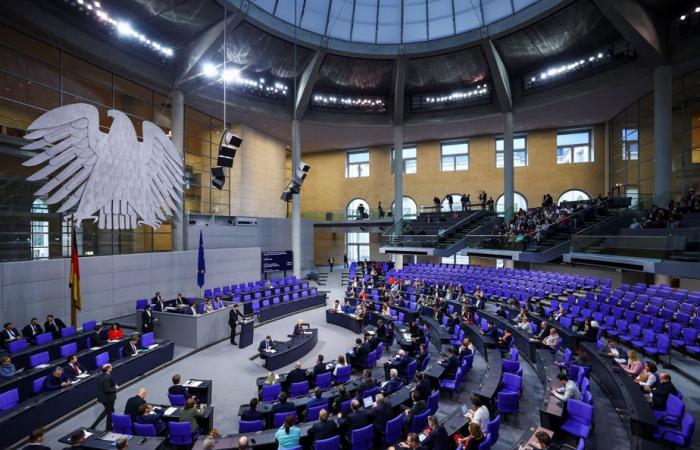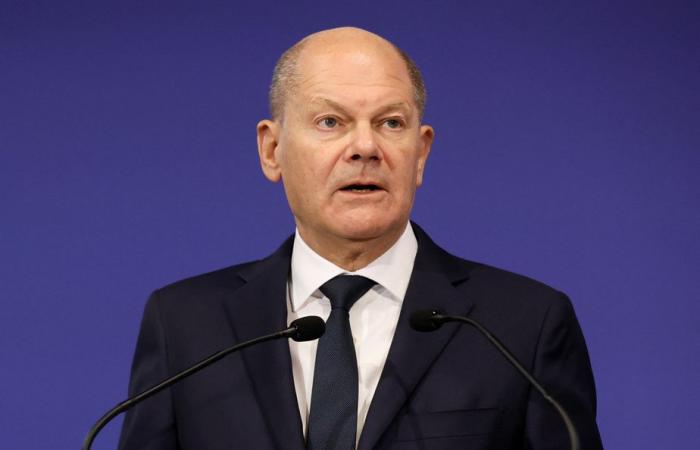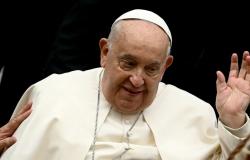The question is not if there will be new elections, but when…
Posted at 1:12 a.m.
Updated at 5:00 a.m.
PHOTO BERNADETT SZABO, ARCHIVES REUTERS
The Chancellor of Germany, Olaf Scholz
Nom : Olaf Scholz
Age : 66 ans
Function : Chancellor of the Federal Republic of Germany
Keywords : Dismissal, coalition, elections, concerns
Why are we talking about it?
While the world’s eyes are on Donald Trump, Germany is in the middle of a political crisis. The ruling coalition, led by Chancellor Olaf Scholz’s Social Democrats (SPD), with the Greens and the FDP liberals, exploded this week. Mr. Scholz finds himself in an untenable situation which should lead to early elections in the more or less short term.
The reason for the crisis
Tensions were already high within this unnatural tripartite alliance. The bottleneck finally came to light on Wednesday, after the dismissal of Finance Minister and FDP leader, Christian Lindner. The cause of the rupture: deep differences on the economic policy to follow, a few days before the new budget. The SPD and the Greens are in favor of reviving the economy through spending, while the liberals advocate social cuts and strict budgetary discipline to respect the constitutional obligation not to incur debt.
“Obviously, it stuck,” summarizes Étienne Dubslaff, lecturer, expert on Germany, at Paris-Nanterre University. In the process, the Liberals left the government, with the exception of Transport Minister Volker Wissing, who left his party to remain in the ruling team.
And now what?
With this rupture, Olaf Scholz now finds himself at the head of a minority government. Various scenarios are possible, but the most likely remains the dissolution of Parliament by President Frank-Walter Steinmeier, since Olaf Scholz risks losing the vote of confidence that he promised to submit to deputies in mid-January, with a view to legislative elections in March.
And above all… when?
March ? For the opposition, this spring deadline comes much too late. “We simply cannot afford to have a government without a majority for several months,” insisted this week the leader of the Christian Democratic Party (CDU-CSU, conservative), Friedrich Merz, proposing instead the holding of elections from next January. Étienne Dubslaff believes that Scholz would prefer to have a reprieve, to “settle what is in progress”. But according to historian Hélène Miard-Delacroix, professor at the Sorbonne, it is unlikely that the chancellor will be able to last very long. “There will be a lot of pressure for it to happen quickly,” summarizes the expert. A very short-term election could, according to her, favor the opposition, which would “benefit from the dynamic”.
But regarding the calendar, this scenario looks more complicated: “The elections could technically take place around January 10, but that also means that the electoral campaign would take place during the holidays. However, in Germany, everything stops during the Christmas period. Imagine running a campaign at that time! », underlines Mme Miard-Delacroix. On Friday, Olaf Scholz said he was open to discussing with the opposition to speed up the holding of elections, if it agreed to support certain pending bills. The conservatives immediately rejected this extended pole, arguing that the rapid organization of the vote of confidence was prior to any negotiation.
Election scenarios
According to an Ipsos poll carried out at the beginning of November, the Christian Democrats (CDU-CSU) would win these new elections with 32% of the votes. But they will probably have difficulty creating a government coalition. This conservative party – long associated with Angela Merkel – immediately rules out any alliance with the far-right AfD party, which continues its worrying progression with 18% of voting intentions. It is also likely that the liberals of the FDP will not obtain the 5% required to sit in Parliament. Ultimately, the hypothesis of a grand alliance between the CDU of Friedrich Merz and the SPD of Olaf Scholz (15%) and perhaps the Greens (11%) emerges. A potentially problematic scenario, believes Étienne Dubslaff. “The risk is having to build a new coalition which will again be very unstable because political positions diverge so much that it will be difficult to govern together. »
Bad time
The end of the government comes at the worst time for Germany, grappling with a serious industrial crisis. The country is threatened with recession for the second year in a row. The announcement in September of potential factory closures at Volkswagen created a tsunami in the country of the automobile. The causes of the crisis are multiple, particularly the loss of price competitiveness. Key sectors like steel and chemicals are being hit by soaring energy costs following Russia’s invasion of Ukraine, when they were once supported by cheap Russian gas. Furthermore, China has become a direct competitor in several areas where Germany was a leader, such as automobiles, steel, chemicals and machine tools. The geopolitical context, with the wars in the Middle East and Ukraine as well as the election of Donald Trump as president of the United States, only increases these uncertainties.
With Agence France-Presse







